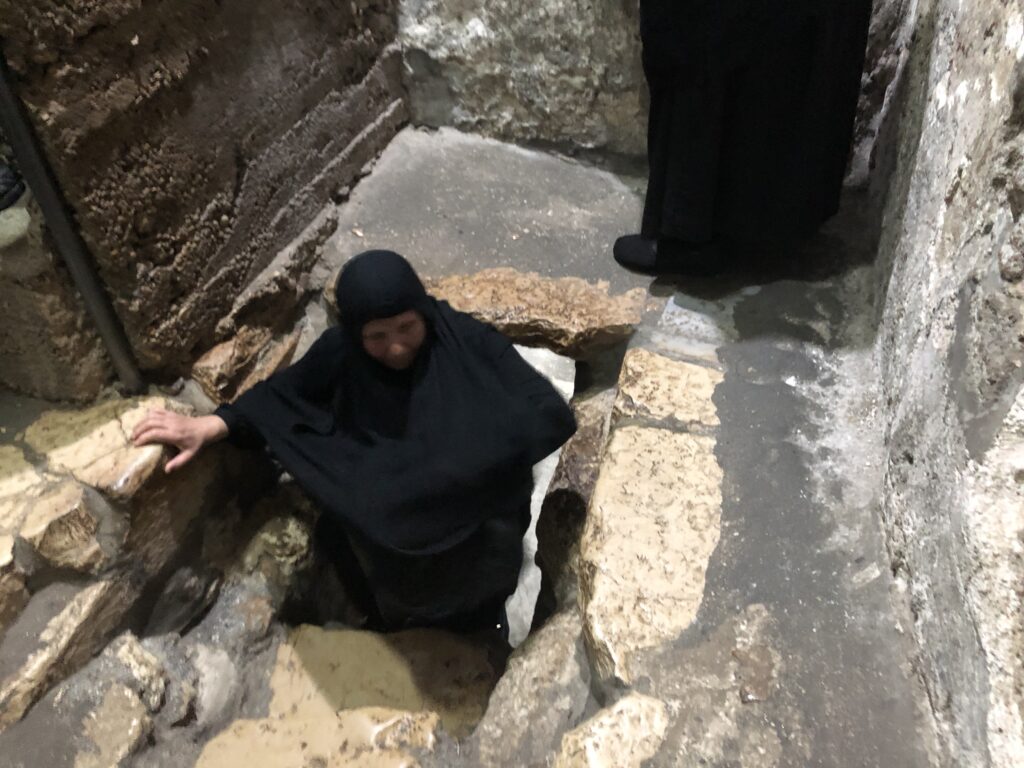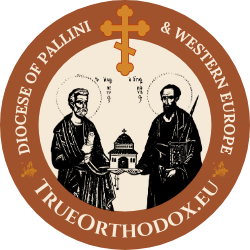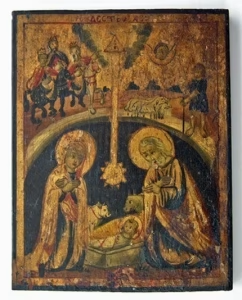On Lazarus Saturday – A Sermon by Archbishop Andrei (Rymarenko)

“In the same way we cry to Thee, O Conqueror of death: Hosanna in the highest, blessed is He Who comes in the name of the Lord” (Troparion (hymn) sung on Lazarus Saturday).
Great is this Holy Day, brothers and sisters! Just think of it, “Conqueror of death”! There have been many conquerors in the history of humanity: many gifted doctors have conquered many sicknesses, many military leaders have conquered tremendous armies, even entire countries. There have been conquerors of space such as the inventors of automobiles, airplanes; conquerors of distance — the inventors of the telephone, telegraph, and so on. But “Conqueror of death” — the whole world does not know of anyone else but Jesus Christ. He alone. Even the so-called “unbelieving world” cannot mention another name. No one among the most prominent people would ever even attempt to make such a claim. But He is, was, and will be — our Savior and our Lord.
During His historical evangelistic life He proved this in three instances: the resurrection of the daughter of Jairus, the resurrection of the son of the widow of Nain, and here in today’s Gospel, the resurrection of Lazarus.
The death of the daughter of Jairus was a recent one. She died while Christ and her father were going to her. Even Christ called it slumber; but the people “laughed Him to scorn, knowing that she was dead. And He put them all out, and took her by the hand, and called, saying, Maid, arise! And her spirit came again, and she arose straightway: and He commanded to give her meat” (Lk. 8:53-55).
In the case of the son of the widow of Nain, death, seemingly stronger, came into its own: the dead man had already been laid on the funeral bier. They had carried him not only from the house, but already through the city gates. In order to touch the bier, the Lord had to stop the carriers. And only then did He say, “Young man, I say unto thee, Arise! And he that was dead sat up, and began to speak. And He delivered him to his mother” (Lk. 7:14-15).
And now Lazarus. The victory of death here was final, one hundred percent. Lazarus had been in the tomb four days already. There was weeping, but no one had any hope of an instantaneous resurrection. Even one of the dead man’s sisters said to the Lord: “I know he shall rise again in the resurrection at the last day.” Even the Lord Himself, when He “saw her weeping, and the Jews also weeping which came with her, He groaned in the spirit, and was troubled,” and He wept. Finally He said, “Take ye away the stone.” Here, even the sister of the dead man could not contain herself and said to Him: “Lord, by this time he stinketh: for he hath been dead four days.” So the stone was removed from the tomb where the dead man was lying, and Christ cried with a loud voice, “Lazarus, come forth! And he that was dead came forth bound hand and foot with grave clothes: and his face was bound about with a napkin. Jesus saith unto them, Loose him, and let him go” (Jn. 11:17-44).
Besides physical death, there is mental death. Physical death is visible to everyone, but mental death is usually not noticeable to people. It is felt only by the dead person himself. Bishop Theophan the Recluse said much about this. Sometimes it happens that a sinful thought darts into your mind and awakens a sinful feeling, but the soul catches itself and calls to the Lord in repentance. And the Lord, as with the daughter of Jairus, will as if stretch out His hand and say, “Soul, arise!” And life will return to its joyous flow. But sometimes it happens that we do not catch ourselves in time and sin enters more deeply into our soul (like going out from the house) and the result will be full acceptance of the sin, and turmoil. But also here, by the prayers of our Mother, the Church of Christ, who cries before the Lord for her children, we can be alerted; and the Lord will tell us as He did the son of the widow of Nain: “Soul, I say unto thee, Arise!” This is salvation.
But what shall we do if sin completely enslaves our soul, as if covering it with a tombstone; and so day after day goes by and passions start to exude their sinful stench, just as with Lazarus? What should we do then? Well, then we need confession, the sacrament which Christ established after His Resurrection, when He said to His disciples, “Receive ye the Holy Spirit: Whose so ever sins ye forgive, they are forgiven” (Jn. 20:22-23). See how all this is reflected in the resurrection of Lazarus. Lazarus, on his own, could not go out from the tomb because it was blocked by a stone. He couldn’t even walk, because he was bound hand and foot with funeral bandages. And here Christ said to His disciples, “Loose him.” In application to us, this means that the Lord orders our clergy, who have received in the Sacrament of the Priesthood the gift of the Holy Spirit, to loose our sins. What joy!
And more: death is not the cause but only the result, the consequence of sin. And Christ is, first of all, the Conqueror of sin, and then along with it, the Conqueror of death. So let us triumph: “Hosanna in the highest!”






